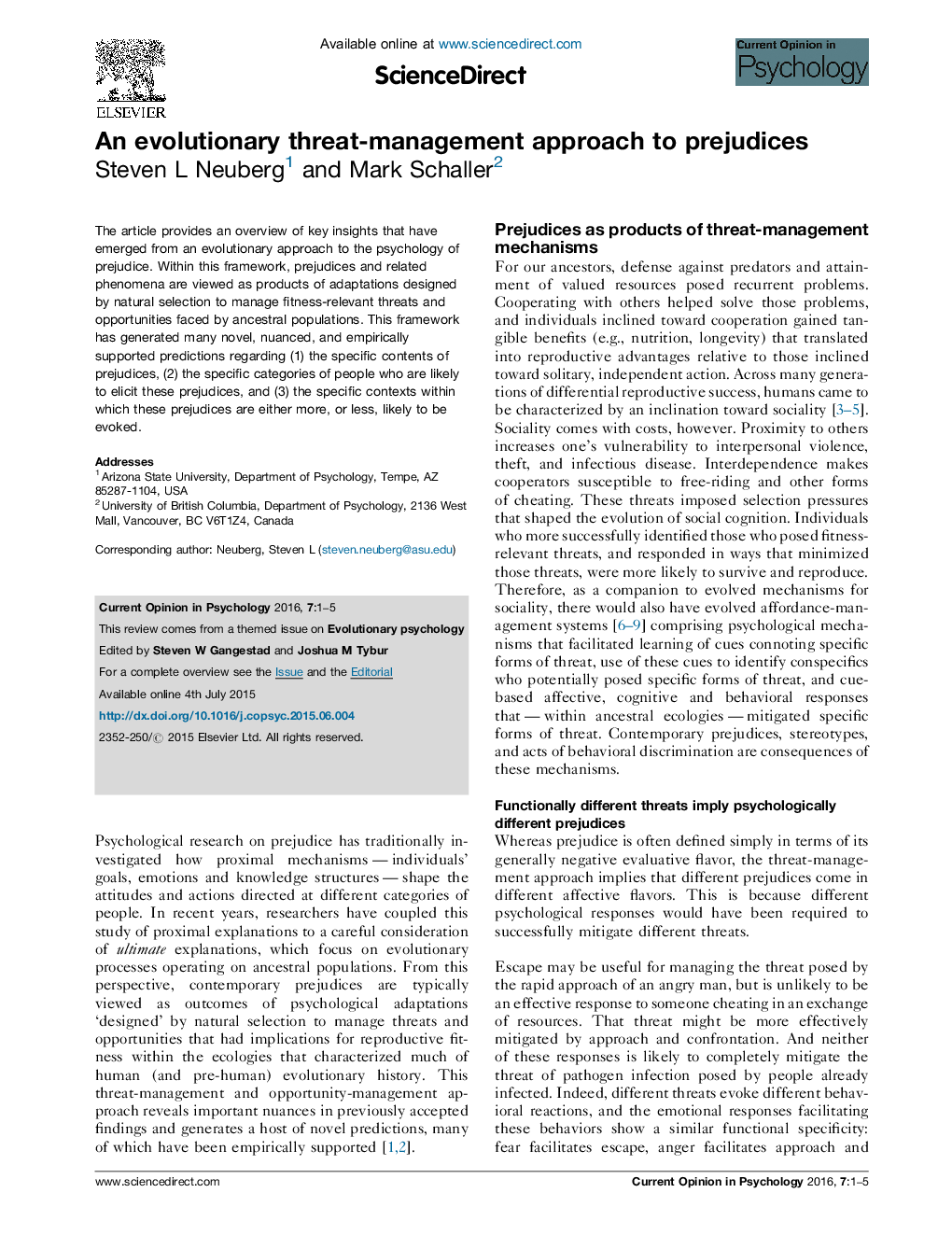| Article ID | Journal | Published Year | Pages | File Type |
|---|---|---|---|---|
| 879345 | Current Opinion in Psychology | 2016 | 5 Pages |
•Many prejudices result from adaptations designed to manage fitness-relevant threats.•Functionally different threats lead to psychologically distinct prejudices.•Prejudices are sensitive to context and functionally flexible in their application.•This approach predicts and explains the contents of sex, age, and race stereotypes.•Men and women differ in why they are prejudiced against outgroup men.
The article provides an overview of key insights that have emerged from an evolutionary approach to the psychology of prejudice. Within this framework, prejudices and related phenomena are viewed as products of adaptations designed by natural selection to manage fitness-relevant threats and opportunities faced by ancestral populations. This framework has generated many novel, nuanced, and empirically supported predictions regarding (1) the specific contents of prejudices, (2) the specific categories of people who are likely to elicit these prejudices, and (3) the specific contexts within which these prejudices are either more, or less, likely to be evoked.
